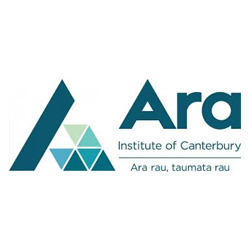
Perspectives of New Trades Tutors: Towards a Scholarship of Teaching and Learning for Vocational Educators
Status
Completed: 15 December 2009
Project Details
A project completed in 2009, undertaken by Christchurch Polytechnic Institute of Technology, to explore the identity trajectory of established trades practitioners as they transition into teaching roles at ITPs.
Aims:
The main aims of the project were to:
- explore the relevance and effectiveness of initial tutor training programme/courses at ITPs
- investigate issues of new tutor initiation into teaching practice as perceived by the tutors
- investigate the perspectives beginning tertiary teachers bring with them via their vocational identity as trades people or professionals into their new roles
- explore the concepts of teaching and craftsmanship which underpin workplace and trades practice.
Methodology:
The project used a mixed methods approach involving:
- a review of the literature
- case studies of new trades tutors on their experiences as new tutors
- a structured questionnaire to gather quantitative data
- semi-structured interviews to gather perspectives of new trades tutors on teaching and learning.
Team

Selena Chan
Project Leader
Christchurch Polytechnic Institute of Technology (now Ara Institute of Canterbury)Status
Funding
$9,200.00 (excl GST)
Key Findings
The key findings from the project included:
- The motivators for entry into teaching included: the desire to pass on the skills and knowledge of the trade; the need to fulfil personal challenges; being invited to apply for the position and therefore needing to “live up to expectations”; improved working conditions which would enhance their family and domestic lifestyles.
- The majority of trades tutors were interested in teaching the trade to young people. There was an intense need by many of the participants to share the knowledge and skills they had attained in their specialist trades areas with aspiring trades people.
- For many of the participants, the main difference between training apprentices in the workplace and teaching at an ITP was the number of students they had to work with. For other participants, it was the authenticity of tasks provided by the workplace which was a major difference between on-job and off-job training. Participants were still very connected to their workplace-based perspective on training. Many were supportive of the efficacies of workplace-based training.
- In this study, many new trades tutors did not receive adequate support in their first years of teaching at an ITP. However, at least half of the tutors received some form of assistance from heads of school, programme leaders, staff developers, mentors and other tutors. Much of the support offered was at the very beginning of the participants’ teaching role. However, the average time provided to new tutors for support in their teaching activities, as reported in the questionnaires and self-estimated in hours, was very low.
- All the participants acknowledged the usefulness of initial tutor training courses. In particular, the courses provided opportunities to network with other new tutors, gain confidence in their teaching role and provided strategies to cope with initial teaching experiences.
- There is a need for greater connect between trades and adult learning. For beginning trades tutors, the cultural capital they bring with them into a teaching role are not aligned with the scholarship of teaching expectations required within the current ITP organisation contexts.
Key Recommendations
The key recommendations from the project included the following suggestions to assist the transition of trades practitioners into roles at ITPs as trades tutors:
Learning organisation approach | Utilising a learning organisation approach in ITPs to enhance on-going staff development.
Communities of practices | Establishing and nurturing communities of practices both external of new tutors’ teaching section and within tutors’ teaching sections. Both communities of practice need to be aware of the considerable initial and ongoing influences on the future teaching practices of new tutors.
Induction systems |The need to improve induction systems into teaching at ITPs for new tutors.
Teaching craft knowledge | Aligning trades tutors’ existing workplace training-based conceptualisations of teaching and learning to extend the teaching craft knowledge of trades tutors.
Provide mentorship | Using the apprenticeship model to provide mentorship for new tutors. This provides a familiar support model for trades tutors. The process is useful in assisting the border crossing process involved when transitioning between the complementary vocational identities of trades person and trades tutor.
Initial tutor training | Adjusting the curriculum of initial tutor training courses to include theories of learning pertinent to workplace and trades based learning and teaching into initial tutor training courses for new trades tutors.
Trades tutors’ multiliteracies | Taking cognisance of trades tutors’ multiliteracies and encouraging and supporting these multiliteracies to be applied towards enhancing trades students’ learning experiences.Teaching craft knowledge | Aligning trades tutors’ existing workplace training-based conceptualisations of teaching and learning to extend the teaching craft knowledge of trades tutors.
Role models for trade tutors | The promotion of role models for trade tutors to aspire towards. These role models are tutors who excel at both their trade/craft and teaching. They provide exemplars which assist new tutors in developing sound teaching practice based on observable relevant and complementary evidence.
A research report prepared by Selena Chan.
(PDF, 1.02 MB, 64-pages).
- 15 December 2009